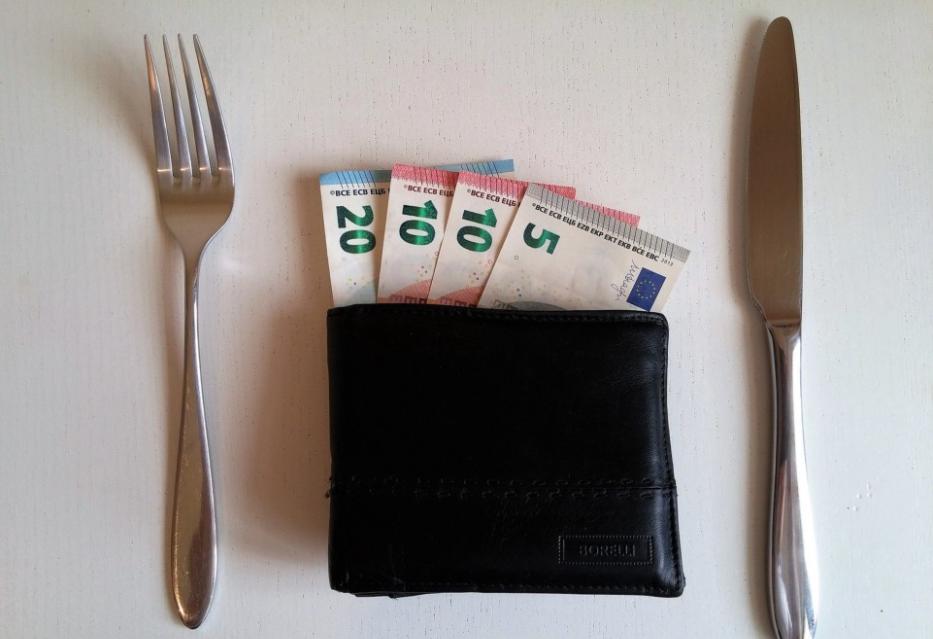
Japan's service industry is second to none in the world, and the Japanese staff is very polite and will do their best to meet customer requests.
From bowing, greeting, and service to answering all the questions of customers, there is hardly any unpleasant experience during a trip to Japan.
It was inconceivable that the staff did not want to be tipped or tipped in return. Even if you try to tip, they are likely to decline and cause trouble as a result. Not only in restaurants, but also in most parts of the country, such as hotels, taxis, hair salons, tour guides or delivery men.
Japan has taken the shoeless concept to the extreme. All Japanese families have a special area called the entrance to their home. This place is where people take off their shoes before stepping into their homes.
Many workplaces and schools require everyone to take off their outdoor shoes and use them indoors. Many restaurants, hotels, locker rooms, and gyms also require everyone to take off their shoes, put them in lockers, and change into indoor shoes.
My advice is to wear shoes that are easy to put on and off, light and not too large when traveling so that they fit into lockers and shoe racks.
In Japan, the subway is a quiet space. Usually, people are reading a book, listening to music, playing games on their smartphones, or sleeping. During the day, Japanese people fall asleep on the subway due to long commutes, lack of sleep, and overwork.
Talking to or talking to the person next to you on the subway or making a phone call can make you look weird. Despite the crowds on the subway, the only sound is the sound of trains speeding along the tracks.
Curiously, most sleeping Japanese people know exactly when they stop and wake up as soon as the door opens. Probably some sort of sixth sense.
After work in the evening, you'll find hordes of drunks on the subway cars and on the streets. Most of them drink with their bosses or co-workers.
With plenty of alcohol on offer and amazing deals, such as $20 an hour to drink all the alcohol, you'll find drunk people waddling down the streets, on benches, on stairs, and even on street corners.
The amount of vomiting on the streets on Friday and Saturday nights is high. Especially in cities where most people commute to work by subway and bus, no one drives, so the bars are packed with drunken customers.
When it comes to vending machines, Japan is known for two things; quantity and variety. Japan has the largest number of vending machines per capita in the world, with more than 5 million units in the country.
They can be found in all big cities, train stations, street corners, and even in remote places near small towns close to forests and mountains. There are even temples and shrines next to them in case you get thirsty during prayers.
The vending machines sell an incredible variety of products. There are some regular vending machines selling coffee, soft drinks and snacks.
Vending machines specializing in ice cream, books, stationery, fruits and vegetables, rice, hot meals, and even clothes can be sold. And the rumors of vending machines selling women's old underwear are true. If you're heading to Akihabara, the anime capital of the world, there are plenty of rare vending products waiting for you to discover!
6. Bow
Bowing is an important part of everyday Japanese culture.
From greetings to farewells, there is a bow on every occasion. Like the Western handshake, bowing is a form of etiquette, a gesture of respect, or gratitude to someone.
In workplace situations, subordinates bow to their bosses, employees bow to customers, and everyone bows to each other when commuting to and from work. Presentations include bowing and displaying business cards. Agreeing on business partnerships and participating in meetings also requires bowing back and forth.
Even outside of work, you'll see people bowing or nodding as they greet or pass by someone they know. Training staff, restaurant staff, and store staff will bow when welcoming or thanking customers. Even friends who say goodbye after dinner or drinks will bow to each other when they say goodnight.
As a tourist, you may not be used to bowing frequently, but bowing has a long way to go when interacting with Japanese people, so in Japan, it can seem polite to bow when someone is helping you or serving you.
Kawaii means cute and is the most commonly used word in Japan, because in Japan you will encounter a lot of kawaii things. Japan's kawaii culture has increased and spread with the popularity of anime, manga, video games, and idol culture.
Japanese women wear cute cosmetics and clothes in colors and designs that make them look younger and cuter. You'll find that kawaii characters or mascots are not only for you in other countries, but also for things you probably don't want to be kawaii.
Banks, insurance companies, police, businesses, and even funeral homes have cute characters or mascots attached to their companies. Each town has its own cute character, called yuru-kyara, which is custom-made for their town to reflect the town's characteristics or popular products.
When watching TV, movies, and music, you'll find that all the ads, shows, and musicians tend to favor cute colored set designs, graphics, or billboards.
Dear friends, what other strange customs do you know about Japan? Welcome to leave a message ♥ below!